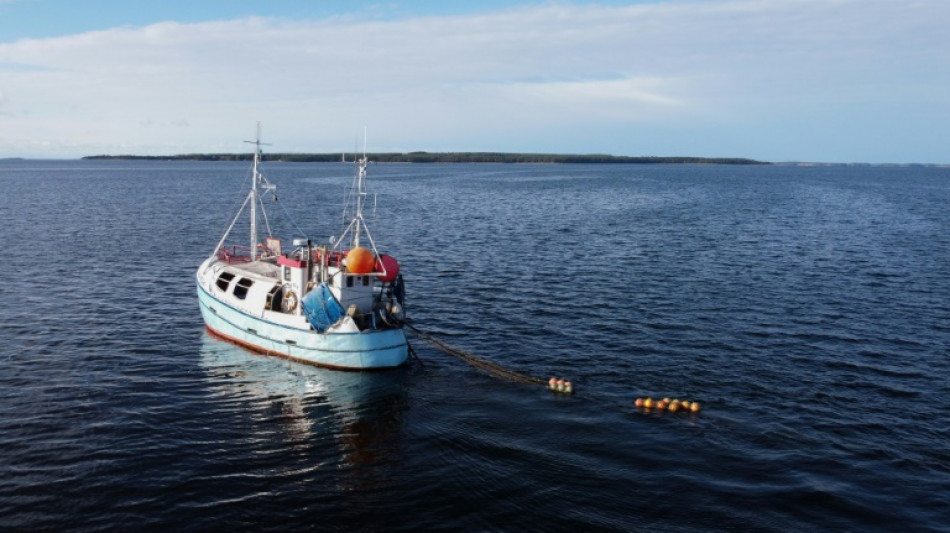
-
 Fit-again Rodri still 'best in the world' for Guardiola
Fit-again Rodri still 'best in the world' for Guardiola
-
TikTok's UK content moderation jobs at risk in AI shift

-
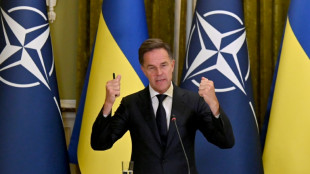 NATO chief calls for 'robust security guarantees' on Ukraine visit
NATO chief calls for 'robust security guarantees' on Ukraine visit
-
Bayeux Tapestry not too fragile to move to UK, French official says

-
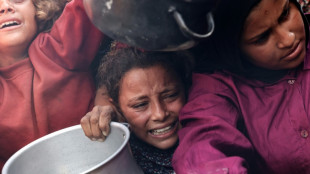 UN declares famine in Gaza
UN declares famine in Gaza
-
Newcastle can't win in Isak stand-off, says Howe

-
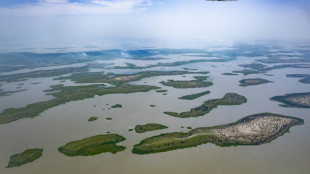 Doubts over Niger claim that a Boko Haram leader killed
Doubts over Niger claim that a Boko Haram leader killed
-
Teenager Wanner signs with Eindhoven from Bayern

-
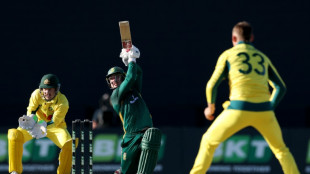 Breetzke, Ngidi star as South Africa crush Australia to win ODI series
Breetzke, Ngidi star as South Africa crush Australia to win ODI series
-
UN declares famine in Gaza as Israel threatens to raze city
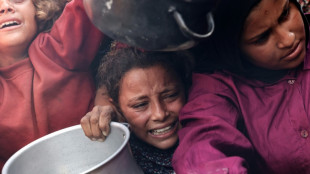
-
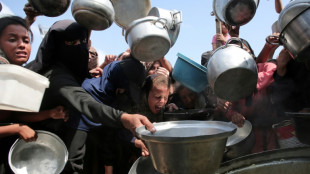 UN declares famine in Gaza, first ever in Middle East
UN declares famine in Gaza, first ever in Middle East
-
AI helps UK woman rediscover lost voice after 25 years
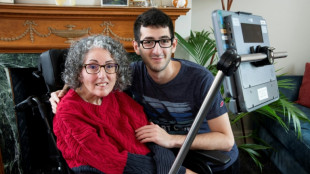
-
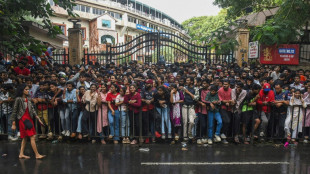 Women's World Cup games moved out of Bengaluru months after tragedy
Women's World Cup games moved out of Bengaluru months after tragedy
-
UN declares famine in Gaza, blames Israel
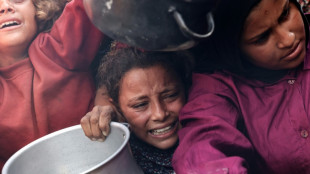
-
 Australian Rules player body urges 'united approach' after homophobic slur
Australian Rules player body urges 'united approach' after homophobic slur
-
Under a drone canopy, Ukraine army medics rely on robots and luck
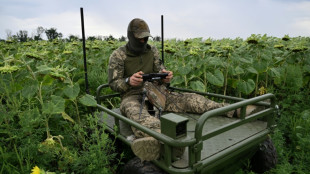
-
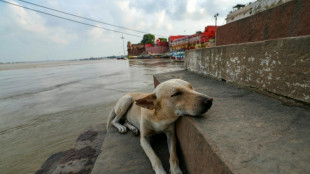 India walks back order to clear Delhi of stray dogs
India walks back order to clear Delhi of stray dogs
-
Breetzke, Stubbs star as South Africa post 277 in 2nd Australia ODI
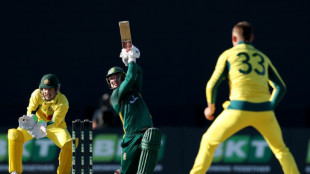
-
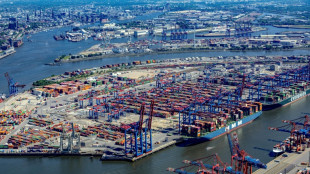 Pressure on Merz as Trump tariffs hit German economy
Pressure on Merz as Trump tariffs hit German economy
-
Australia orders audit of crypto trading giant Binance

-
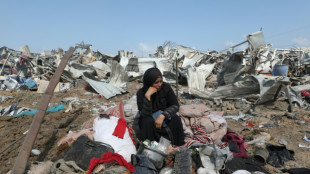 Israel vows to destroy Gaza City if Hamas doesn't disarm, free hostages
Israel vows to destroy Gaza City if Hamas doesn't disarm, free hostages
-
Alonso and Real Madrid look for more fluidity on trip to Oviedo

-
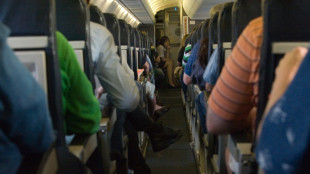 Bumpy skies: How climate change increases air turbulence
Bumpy skies: How climate change increases air turbulence
-
Chinese tiger, French berets and space cannons mark Gamescom 2025
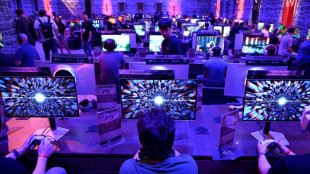
-
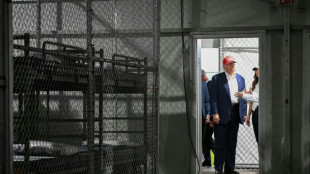 US judge orders dismantling of Trump's 'Alligator Alcatraz'
US judge orders dismantling of Trump's 'Alligator Alcatraz'
-
Evicted from their forests, Kenyan hunter-gatherers fight for their rights
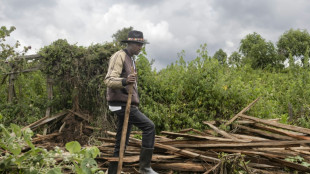
-
 Japan city proposes two-hour daily smartphone limit
Japan city proposes two-hour daily smartphone limit
-
A rise in the mountains as Vuelta a Espana cranks up the climbing
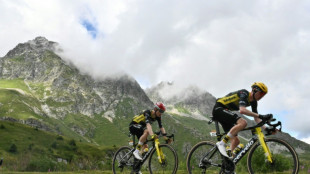
-
 Thai ex-PM Thaksin acquitted of royal insult charges
Thai ex-PM Thaksin acquitted of royal insult charges
-
Japanese amateur boxer in intensive care after latest incident
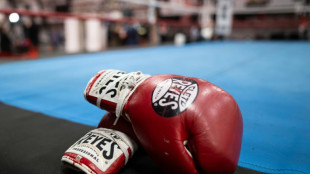
-
 US wine sellers left in limbo despite EU tariff deal
US wine sellers left in limbo despite EU tariff deal
-
Erik Menendez denied parole, decades after parents' murders
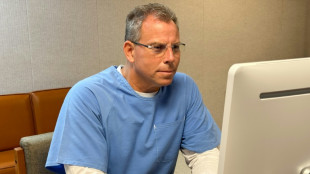
-
 Under Trump pressure, US Fed chief to walk tightrope in speech
Under Trump pressure, US Fed chief to walk tightrope in speech
-
Nvidia chief says H20 chip shipments to China not a security concern
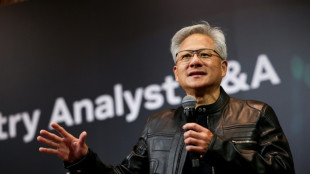
-
 North Korea's Kim decorates troops who fought for Russia against Ukraine
North Korea's Kim decorates troops who fought for Russia against Ukraine
-
Two separate guerilla attacks kill 18 in Colombia

-
 Rice prices up 91 pct year-on-year in Japan
Rice prices up 91 pct year-on-year in Japan
-
Asian markets tick up as investors eye Jackson Hole meeting
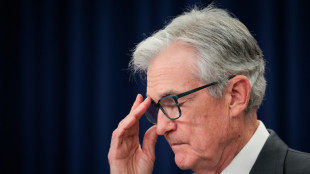
-
 De Bruyne leads Napoli's Serie A title defence as Lukaku injury causes concern
De Bruyne leads Napoli's Serie A title defence as Lukaku injury causes concern
-
Pollard, Albornoz hailed as key Rugby Championship clashes loom
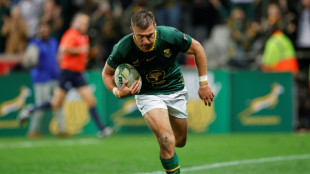
-
 Marseille plunged into crisis with season just getting started
Marseille plunged into crisis with season just getting started
-
Pakistan woos old rival Bangladesh, as India watches on
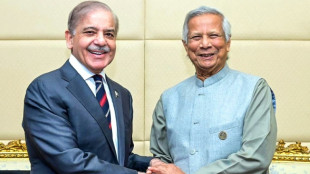
-
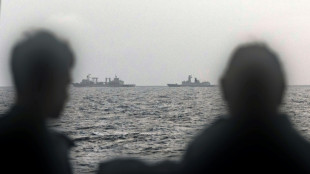 Documents show New Zealand unease over Chinese warships in South Pacific
Documents show New Zealand unease over Chinese warships in South Pacific
-
$346 mn US-Nigeria arms deal sets rights groups on edge
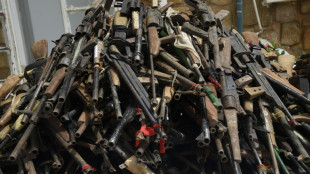
-
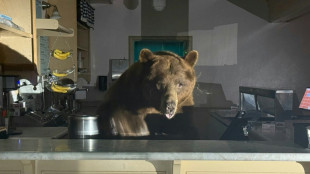 Got the scoop: Bear takes over California ice cream shop
Got the scoop: Bear takes over California ice cream shop
-
Rested but rusty Djokovic plots US Open ambush
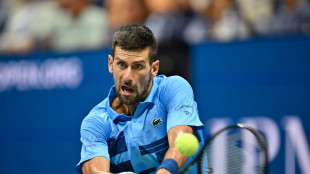
-
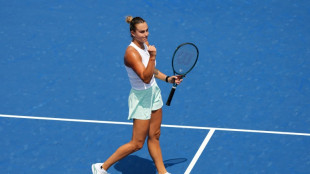 'Tough lessons' helping Sabalenka ahead of US Open defence
'Tough lessons' helping Sabalenka ahead of US Open defence
-
Meta makes huge cloud computing deal with Google: source

-
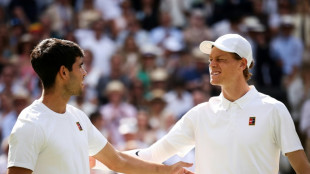 Blockbuster 'Sincaraz' rivalry ready to light up US Open
Blockbuster 'Sincaraz' rivalry ready to light up US Open
-
Less tax, more luxury: millionaires flock to Dubai


Ailing Baltic Sea in need of urgent attention
Decades of pollution and climate change have caused fish to disappear from the Baltic Sea at an alarming rate, with the European Union on Thursday vowing to make the sea an "urgent priority".
Unveiling its road map to protect Europe's seas, the European Ocean Pact, Brussels announced a summit on the state of the Baltic Sea in late September.
The semi-enclosed sea is surrounded by industrial and agricultural nations Germany, Poland, Russia, Finland, Sweden, Denmark and the three Baltic states.
Connected to the Atlantic only by the narrow waters of the Danish straits, the Baltic is known for its shallow, low-salinity waters, which are highly sensitive to the climate and environmental changes that have accumulated over the years.
"Today, the once massive Baltic cod stocks have collapsed, herring stocks in several sub-basins are balancing on critical levels, sprat recruitment is at a record low and wild salmon stocks are in decline," Swedish European MP Isabella Lovin, rapporteur for the EU Committee of Fishing, warned in a report, calling the situation "critical".
- Dead marine zones and climate change -
The Baltic Sea is home to some of the world's largest dead marine zones, mainly due to excess nutrient runoff into the sea from human activities on land -- a challenge the sea has long grappled with.
The runoff has primarily been phosphorus and nitrogen from waste water and fertilisers used in agriculture, as well as other activities such as forestry.
It causes vast algae blooms in summer, a process known as eutrophication that removes oxygen from the water, leaving behind dead seabeds and marine habitats and threatening species living in the Baltic.
Today, agriculture is the biggest source of nutrient pollution.
Marine biodiversity in the relatively small sea has also deteriorated due to pollution from hazardous substances, land use, extraction of resources and climate change, according to the Baltic Marine Environment Protection Commission (HELCOM).
"The state of the Baltic Sea is not good," Maria Laamanen, a senior advisor at the Finnish environment ministry, told AFP.
Climate change poses "a massive additional challenge" for the marine environment, she said.
Of the world's coastal seas, the Baltic Sea is warming the fastest.
A 2024 study said sea surface and sea floor temperatures have increased by 1.8 and 1.3 degrees Celsius respectively in the Finnish archipelago in the northern Baltic Sea, in the period from 1927 to 2020.
The consequences of rising temperatures already affect species, while increased rainfall has led to more runoff from land to sea.
Better waste water treatment and gypsum treatment of agricultural soil, as well as an expansion of protected marine areas in Finland, have had a positive effect on the maritime environment, according to Laamanen, who said environmental engagement had grown in recent years.
"The situation would be much worse without the measures already implemented," she said.
- Fisheries -
In her report, Lovin called for an ambitious reform of fisheries, with stronger attention paid to environmental and climate change impacts.
The report also questioned whether the Baltic could continue to sustain industrial-scale trawling, and suggested giving "priority access to low-impact fisheries and fishing for human consumption".
The head of the Finnish Fishermen's Association (SAKL) Kim Jordas said eutrophication was to blame for the declining fish stocks in the Baltic Sea, not overfishing.
"Looking at cod for example, it is entirely due to the state of the Baltic Sea and the poor oxygen situation," Jordas told AFP.
In Finland, the number of commercial fishermen has been declining, with a total of around 400 active today.
O.Mousa--SF-PST
